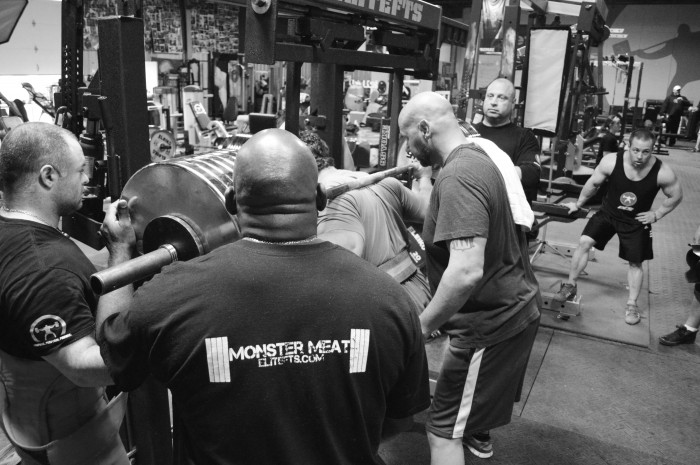
What does it take to build a good lifting crew?
Much of what I'm going to write about here comes from what I've learned in my experiences during my time at Westside Barbell Club. Before that, I was a part of several different lifting crews. Most of which, with the exception of two, were all powerlifting-related. There were pros and cons with every one of them. The reason why I'm going to focus on the time that I was at Westside Barbell is I think that that was the best lifting crew that I've ever been a part of, and the dynamics on how it worked, and the progress that everybody made, and how it operated.
There's pros and cons to everything. With the cons, or better stated, the cons associated with what I'm going to present are this. It's very difficult for you to auto-regulate your training. When you're in a lifting group that's going to follow the concepts and the guidelines that I'm going to present, your ability to auto-regulate is very, very hard because the pressure is going to be very intense to be able to push forward. If you are very genetically inclined, being a part of a lifting group with this type of dynamics may not always be the best for you. At the same time, there's a really good chance, if that's the case, you're going to be the strongest person in a group, which makes it easier to auto-regulate anyhow, because you're leading the group without even knowing that you're doing so. This could made it the best thing for you. This all depends on the dynamics of the group and what the overall goal is.
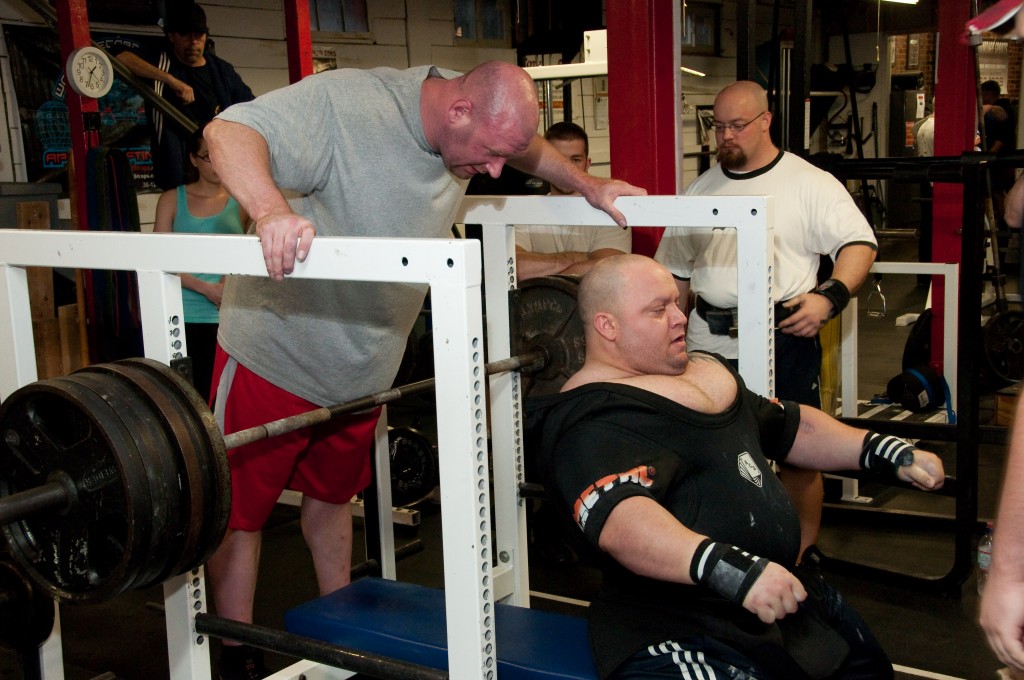
I had to post this because of how Awesome Vincent looks now. This guy has help multiple world bench records in multiple-ply and Benched 600 raw in many weight class. Check his coaching our Blog now to see what he's up to. - click image to go to his Blog.
START WITH ONE
If you're just one person, find another one. It's that easy. That's how the sport's going to grow anyhow. I'm continuously asked, "How can we make the sport larger?" Well, the answer is very simple. It all falls back onto personal responsibility. If you're a powerlifter, find another one. If every competitive lifter found one competitive lifter, you just doubled the sport. The personal responsibility is huge. Start with one. If you're just one lifter, find another one. I assume when somebody is asking me, "How do you start a group?" They're asking how to start a group. Well, the way that you find another one is you compete, you go to meets, you try to find people that are local. If you've got to drive, then you drive to be able to train with them. It's a really weird sport because there's so many small gyms, and there's so many garage gyms and basement gyms that you could have five or six people all within a five, ten mile radius of each other, all training for powerlifting, but you don't even know it.
The only place you're going to find out about it is by going to meets. Or, the best way you're going to find out about it. You can try to find out about it using social media, but good luck. If you're not friends with them, or know friends of friends, it's pretty much pointless. You go to a meet, you're more than likely to find people who are going to live closer to you. That would be the first recommendation. It's a stupid one, but it makes a lot of sense because it's so simple most people overlook this. When I think back to the time that I was at Westside, and we're talking between 1991 to 2005, I can think of at least three, maybe four times to where Louie, Chuck Vogelpohl, Kenny Patterson, and myself were sitting in the gym in the morning because we were the only ones left, looking around, asking each other, "What are we going to do? We need to find more people? Where are we going to find these people at?" Then organically it grows, and then you end up with a group of more people. Don't misunderstand, we still trained but the goal was to have the strongest gym in the world - ever. This is hard to do with four people.
You can't get discouraged because the numbers are small if you continue to compete, you continue to keep your eye out for potential. Potential are guys that are lifting in other gyms, commercial gyms, who are strong but just really don't know that much about the sport. If you got something to offer, then they're going to want to come train with you.
Note: While I was the first to move to train with Louie at Westside Barbell there were over 50 elite total created there (at that time - many more now), national, world champions and multiple alltime word records with ALL the lifters being from the Columbus area. The majority from the Westside of Columbus.
When you do bring people in, bring them in slow. They got to earn their place. They got to earn their rank, so to say. I think that Louie has written several times ... No, actually Louie hasn't written it. I think other people that lifted who lifted at Westside Barbell have said that Chuck Vogelpohl didn't talk to them for six months until after they were there. I believe and I know why. I know I personally didn't give a shit to talk to anybody for at least two months. I didn't care. I'm there to take care of the people who I was training with and myself. If it's somebody new into the gym, they got earn the respect and the right to be able to be helped. Otherwise, it's a waste of everybody's time. If it's just going to be somebody that's going to show up and suck everybody's energy, and then not be able to give anything back, or they're going to be a puss, or they're not going to be able to represent. As Louie has stated hundreds or thousands of times.
" We know what Westside Barbell can do for you, what can you do for Westside?"
- Louie Simmons
Before we were to 100% engage in the new person, and start helping out, and helping 100% with the programming, and tweaking and changing every single flaw and every error that they have, we had to see if they even show up. See if they train. See if they're consistent. See what their work ethic's like. Otherwise you could pour your heart and soul out, and they're not going to stick. When you're pouring your heart and soul out, and spending your time trying to help that one person who just came in, you're not helping the other three or four that have been in your group for years. This is a BIG ask and a BIG trade, is that new person worth it? Have they earned it?
Make them earn that. You don't need to come straight out and tell them. It is your responsibility to help them, and to make them better. What I'm saying is, you don't have to give them, every single time they come in, a two hour personal training session on how to be a better powerlifter. Find one thing. Fix it. Find another thing. Fix it. Find another thing. Fix it. Take the time. Then when they start to show that they're going to show up, and if they're going to add value, and they're going to add something to the group, then engage.
Have everybody else engage to make them better, and then their lifts and their progress is going to increase exponentially. It's like a probationary period, if you want to call it that, without really actually saying it. If you tell people that, then they're going to come in and do everything that you want them to do. Then later on they're going to fade out, and suck your energy, and not be something that you want to be a part of the gym anyhow.
When you do get somebody that's in the gym that is a virus, get rid of them. Don't even fuck around. If there was one thing that I think everybody that I trained with at Westside could agree with, thinking back on the people that we kicked out, or got thrown out of the gym, is we should have done it sooner. That was the one thing that we always said, every single time somebody had to get thrown out, is, "Fuck. We should have done this way sooner." It goes back to when I got in the business, the advice I kept getting when it came to employees was to hire slow, and fire fast. It's exactly the same concept. There's been a lot of things from training that I've learned that's carried over to business. That's one concept from business that I learned that we tried to do when building a group and training. It's one thing that's carried over in the other direction, in that regard.
BURN ALL EGOS AT THE STAKE
Training should be fun. It should be enjoyable. It shouldn't be about bowing down to one, and having to take care of every need of one specific lifter, just because they happen to be the best lifter in there. Fuck that. If that's the case and you have a prima donna in there, throw them the fuck out. Let them go see what they can do on their own. Get them the fuck out, because they're draining everybody else. You're only as strong as the weakest person in the gym. This is straight from Louie. They represent the gym. They represent the club. They're wearing the same fucking shirt you are when you go to a meet. When they're out at dinner, they're wearing the same shirt you are. When people are talking to them someplace, and they ask, "Where do they train," they're saying the same place you do. Whatever their strength level is, and whatever their potential is, it's your job to make sure they fully realize that.
They're not just representing themselves. They're representing the club that they're training with, and you. It's your job to get them stronger than you are. Then when they become stronger than you are, it will be their job to get you stronger than them. That has to be ingrained. That was one thing that Louie ingrained in every single one of our heads. Maybe it was ingrained in mine more than others. I don't know, but it was ingrained in my fucking head in a big way. I strongly felt that to be true, and I still strongly feel that to be true today. I think that if you can do that, then you can build a great club, because the wheel keeps building. It keeps becoming better.
TRAIN THE SAME WAY
I know people are going to disagree about this. This is where I started with talking about the inability of being able to actually auto-regulate. You have to have the energy and the positivity of the social dynamic of being able to train in a group. Training in a group becomes diluted when everybody's doing something different. If you got one guy benching on Monday, for example, you got two guys benching, one guy's deadlifting, three guys are squatting ... Unless you got a really small gym, and everybody's right there in each other's face, you're going to lose a lot of the social dynamic that goes on with that. While people will have their criticisms about dynamic effort work, and say whatever they want to say about it, I disagree. That's for another post.
One thing that the dynamic effort method offers with the way that it's implemented is you have the social dynamic. If it is a bench press, for example, and you're benching on every 60 seconds, you can have three to four, even five, people benching in one group, and you're moving. As soon as one guy gets done benching, he's up and out, and then the next guy's in. It's this rotating circle to where you go from one guy who's on deck, one guy benching, one side spotter, one back spotter, and another side spotter, and this just keeps rotating around clockwise, with people changing weights. Before you even get to the bar, you're on deck. Your weight's already loaded. All you have to do is tighten your wrist wraps and go. Because of that energy and that social dynamic of everybody pushing and moving, the energy picks up. When that energy picks up, your ability to produce force is going to pick up as well. That social dynamic is huge when it comes to building a successful club, or gym, or powerlifting team, which is the question that was asked here. Max effort work kind of works along those same lines.
If you don't train using any kind of concurrent type of training, or anything like that, you can still get the same social dynamic using any type of periodization program, because the rest periods are a little bit longer, and the groups are longer. I've always trained in groups of three to five people when I've powerlifted, and we always train together. We didn't train in five different racks. It didn't matter how we trained. Many times, there were people doing different training programs, but we were still able to pull together to where everybody was doing the same movement at the same time. I do think that that is an important aspect.
HAVE GREAT EQUIPMENT
I do understand that this is biased because I am in the strength equipment business, but the best lifters are going to gravitate to where the best shit is. They're not going to go to where there's shitty bars. They're not going to go where there's shitty stands. If they use a Monolift, they're not going to go where there's not a Monolift. If they use jack stands, they're not going to go where there's only power racks and no jack stands. You have to have quality equipment, and good bars, and the shit that they need to be able to get better. You're not going to be able to attract the group that you're looking for if you don't have what they need to be able to compete and get better. That's a simple concept, but it's overlooked.
When I speak to people who are trying to build clubs, they don't understand. It's like, "I'm trying to build this powerlifting team, and all they got are these shitty power racks." That's fine. All the power to you if you can do that, but if there's options with other groups and they got better equipment that's going to match what they're going to compete with, that's where they're going to go. Out of all of it, the bars are going to be the most important. People are not going to go squat some place with shitty bars. It's just not going to happen.
---
WHAT ABOUT THE OTHERS
Now, up until this point, what I've talked about in this article is the training environment for a powerlifting group, specific to creating the best competitive powerlifters that you can, with the priority being on that. In other words, powerlifting being a very, very high priority. Example. They don't give a fuck about anything else in the gym except getting stronger. Nothing else. They're not there to socialize. They're not there to make friends. They're not there to catch up with people. They're not there to get a pump on. They're there to get fucking strong for meets, and that is it.
Now, what I want to talk about is if you want to create a training environment that's a serious training environment, but not at the level that I just spoke about, say a notch down from that. Semi-serious. There's nothing wrong with that. I think that's actually what the majority of all lifters out there want. They want more of an environment where they can go in, have fun, have a good time, have less stress, and not have it be a competitive, sporting-type of environment. To do that, some of the same rules apply. If you get a virus in there that's bringing everybody else down, you got to get them out, because it spreads. You want to have positive people in there who are trying to get better, and are having fun, and are working hard to get better. One person may not hurt the whole club, if there's 15, 20. One's probably not going to damage the whole club, because more than likely, the 15 or 20 are going to end up bringing that one up.
That one starts to turn into two, and it turns into three, then you got to make a change. You got to get rid of those people, because it will slowly infest everybody. If you have one, you have to watch. You have to see, "Are the others, just in the way that they train, and they way that they interact, bringing that one up?" Now, in environments like I'm talking about here, you may not have everybody training together, doing the same exercise with that social dynamic that I was talking about. That being the case, you may have a group of bodybuilders training at one time, and a group of powerlifters training another squat at one end of the gym, and some benchers training on the other end of the gym. The way that you can make this more successful is just for everybody that's in each group to understand that everybody is there for each other. If somebody needs a spot, you shouldn't have to walk all the way over to the gym, and say, "Hey, can you come give me a spot?" Everybody in each one of these groups should be looking up while their resting for their sets to see if everybody else is okay. To see if everybody else is taken care of, if they need a spot. You can tell if somebody's standing there waiting to see if somebody's going to look up, and they need a spot.
There's a lot of nonverbal communication that happens in this type of group environment, where there needs to be some type of social awareness with all the lifters that are in the gym to be able to know, "Oh, look. I need to go give them some help. Or maybe these guys over here are working up and they're going to do a strip set, and they need somebody to help pull them down." Then you work together to figure out when the set can happen without screwing up somebody else's training session. The other thing is, in a group like this or a club like this, to make sure that people understand basic fucking ethics of how to be in a gym, and what you should do when you're in a gym. When you're in a dirty ass, hardcore, whatever you want to call it type of gym, there's a lot of latitude on what you can get away with, what you can't get away with. Some places are fine if you're spitting on the floor. Other places are not. It just all depends. You can figure all those little things out. Some places are fine with people having spit cups. Other people are fine not having spit cups. I've seen just about every fucking thing you can imagine in a gym, and it be totally okay.
TOTALLY NOT ACCEPTABLE
There's some things that are just not fucking totally okay. Those include walking in front of somebody when they're getting ready to squat, especially if they're in their fucking set, and they're set, or they're doing a set of squats. You don't fucking walk in front of them. Ever. There's no circumstance ever where that's acceptable. It just doesn't happen. Somebody does that, they need to be called the fuck out, and be told to never, ever do that. Ever. The deadlift would be the same way. You don't fucking walk in front of somebody. I would say that would probably apply to any strongman events that involve lifting anything ... Let's just say, lifting anything that's really fucking heavy, you don't walk in front of the fucking person. Not while they're doing their set. You just don't do it. It's unacceptable.
Another one is asking people questions between their fucking sets. You can ask questions, and you can talk, and all that other bullshit, between exercises, but if you're doing a fucking movement, and I don't care if it's bodybuilding-related, or if it's the squat bench or deadlift, or any type of powerlifting movement, once you get into the work sets, you work. You don't fucking have dialogue about what you're going to do for dinner that night. The only dialogue you're having should be specific to the cuing of the lift that you're doing. You really even shouldn't be able to talk, because you're breathing so hard, or you're focusing on what you need to be able to do to get ready for the next set. If somebody comes up in between sets and starts trying to have dialogue, they can't do that. There needs to be fucking signs posted. Shut the fuck up between sets. That kind of shit can't happen. Now, if it's between an exercise, that's different, because you got to set other shit up, you got to move on. I still don't like it, but it's different.
To go along with this, once any working starts, the more serious the lifters are, the less they want you to fucking talk to them while they're training. You can train with them, and you can be training partners with them, but if you want to be training partners, and you start getting into the heavy shit, shut the fuck up and work. After the training's done, sit down and talk for two hours. You're done. Relax. Enjoy. Have fun. You get into the accessories and the shit that really doesn't make that much difference. You can fuck around and talk, you do whatever you want to do. Just keep the work going during the heavy stuff that needs to be treated with respect. The weights need to be treated with respect, and the lifters need to be treated with respect.
In either case, the more serious case or the lighter case, be on time. If you're not going to be on time, let your training partners know, or your training partner know, that you're not going to be on time. Send them a text, whatever you need to do to let them know. They don't want to sit there for 45 minutes, waiting to see if you're going to show up, and then you don't fucking show up. If you're going to be late, let them know. Best just to be on time, but shit happens. It all depends what time you're training. Once again, it comes down to just basic respect. I'm sure there's other things that I'm forgetting, but I've been writing this for too long. I'm going to shut it down because my last posts have been way too long, and I need to start trimming them down some.









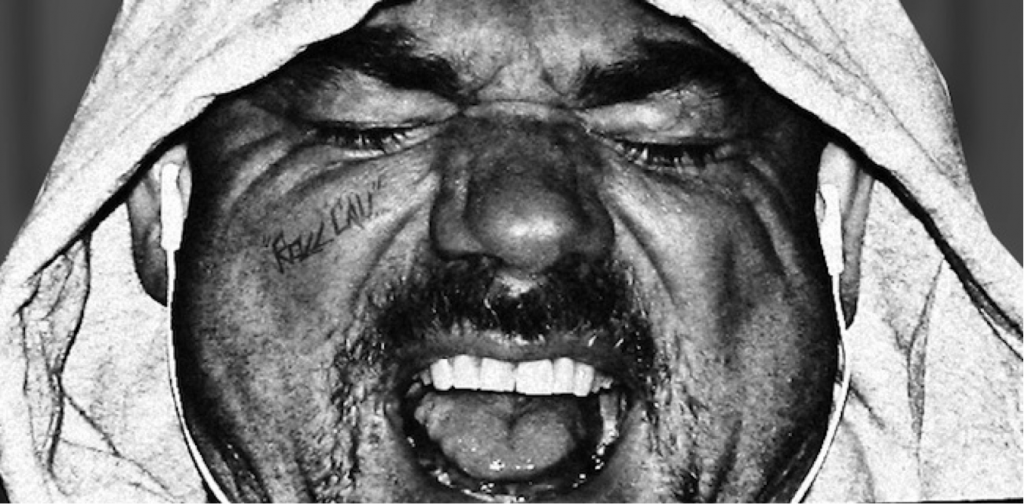
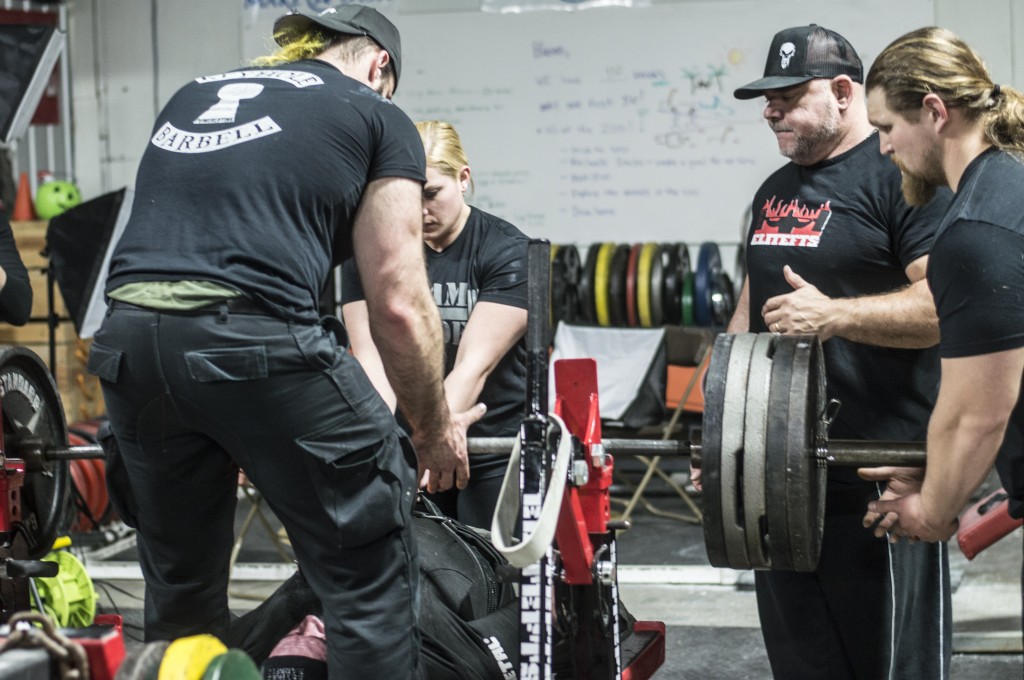
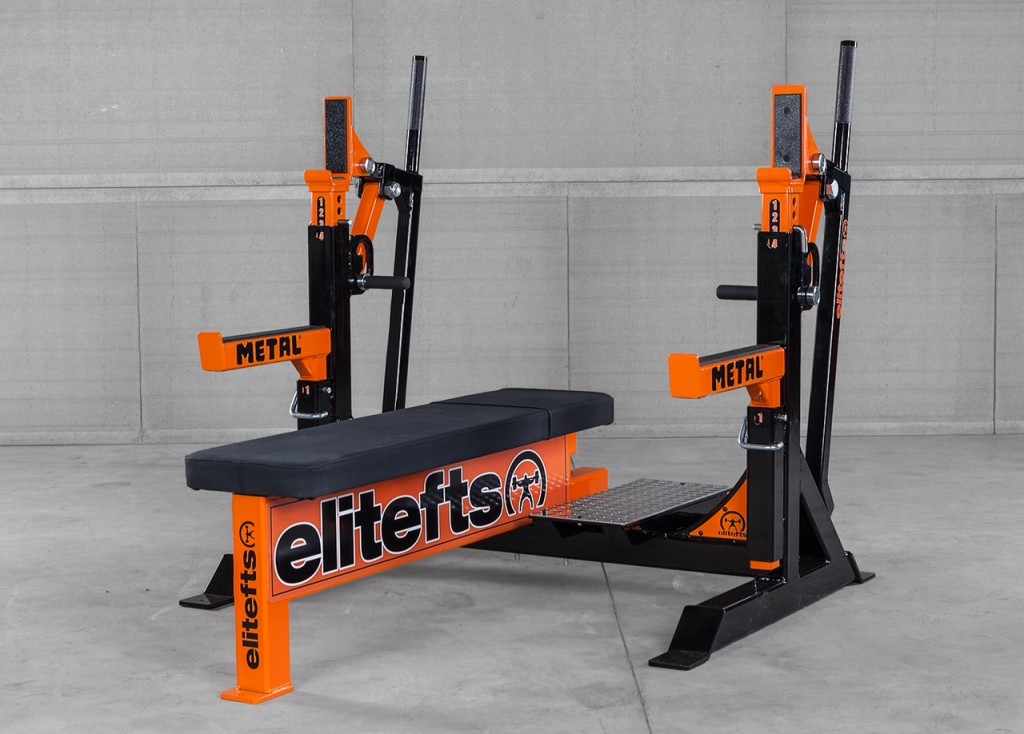
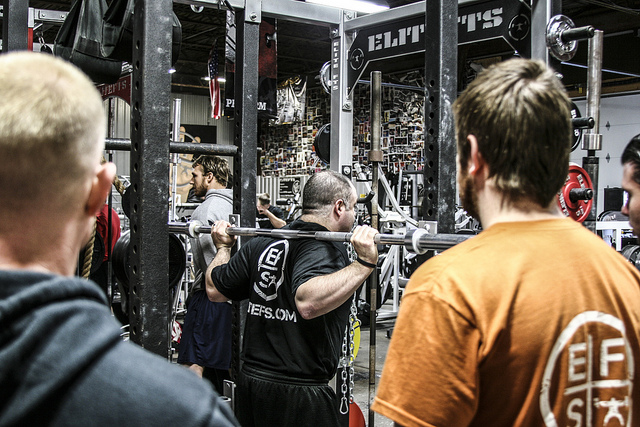
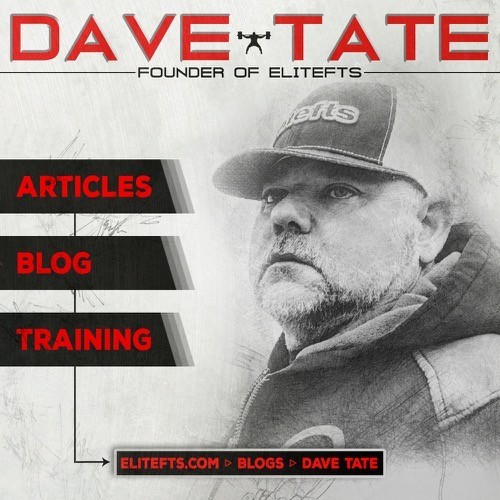
1 Comment